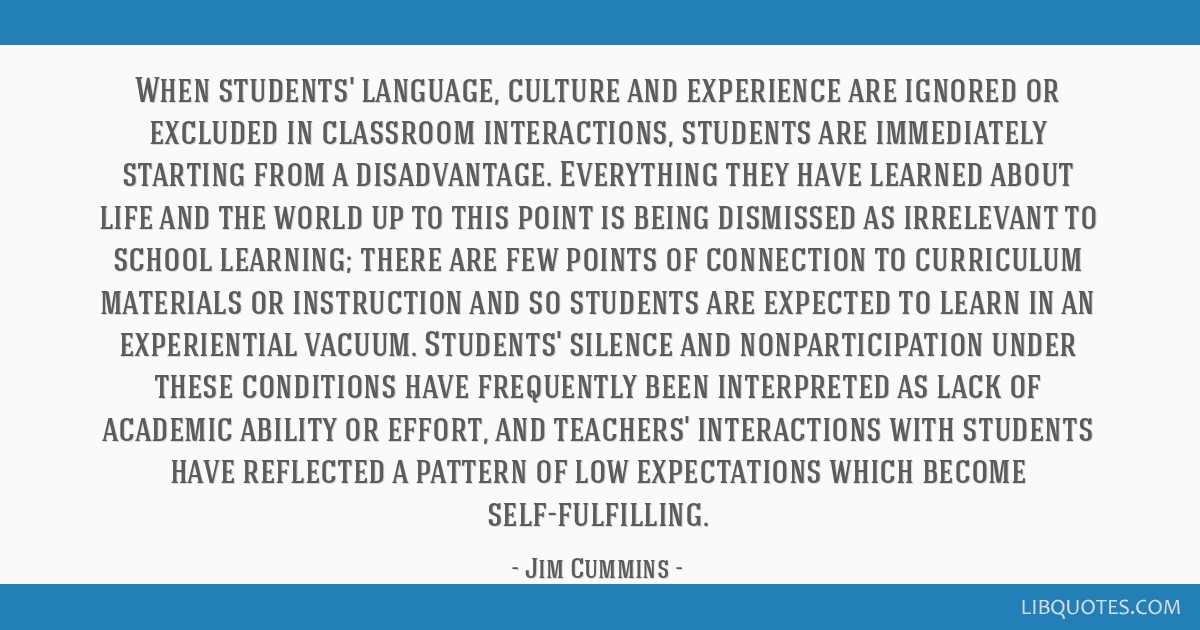When students' language, culture and experience are ignored or excluded in classroom interactions, students are immediately starting from a disadvantage. Everything they have learned about life and the world up to this point is being dismissed as irrelevant to school learning; there are few points of connection to curriculum materials or instruction and so students are expected to learn in an experiential vacuum. Students' silence and nonparticipation under these conditions have frequently been interpreted as lack of academic ability or effort, and teachers' interactions with students have reflected a pattern of low expectations which become self-fulfilling.
Negotiating Identities: Education for Empowerment in a Diverse Society (1996), pp. 2-3























